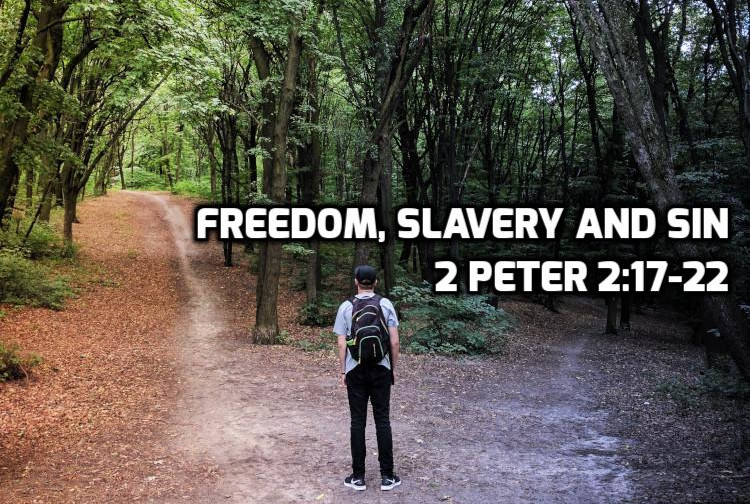1 John 2:18-28 tackles the question: how do you know what’s essential and what is non-essential?

Latest Blog Posts from Wednesday in the Word, the podcast about what the Bible means and how we know.

1 John 2:18-28 tackles the question: how do you know what’s essential and what is non-essential?

Your response to my request to break 100,000 downloads has been overwhelming (103,493 downloads and counting)! If this rate continues, we’ll average over 3000 listeners per month! That’s the equivalent of offering the in-person study 3 times every day. I am grateful and I hope you are enjoying the 11-week series on 1 John we started in February.

John sets the world and the gospel in opposition to each other. You can’t serve them both. You have to choose and his first exhortation is don’t choose the world.

How should we handle theological disagreements among believers? What issues are so critically important that we should draw a line? And, on what issues should we agree to disagree? John gives us a place to draw the line.

John begins his summary of the true gospel by saying God is the source of and all life, salvation and holiness. Therefore those who are trust Him will have lives marked by a concern for goodness and a pursuit of righteousness.

Study questions, maps, charts, key words, history, background, outlines, and links to help you study both Paul’s first epistle to Timothy.

Of all the competing voices out there, how do you know which one is right? Which one is worth listening to? And which ones carry more weight than the others? Who you listen to and why is a major theme of the letter of 1 John. John wrote this letter teach his readers to recognize the difference between the true gospel and false gospels and between true teachers and false teachers.

1 John: An 11-week Bible Study podcast on John’s first letter from the podcast Wednesday in the Word with Krisan Marotta

While not a complete list of early church heresies, these groups are the ones that the New Testament authors seem to write against and respond to most often.

Peter concludes his second letter by discussing the end of the age, the return of Christ and what that tells us about how we should live now.

As I write this, the 426 episodes of the WitW podcast have been downloaded 100,422 times! In fact, we crossed 100,000 EARLY in January. Thanks to everyone who listened and sent a note! You are most appreciated! We finish 2 Peter January 30 and will start a NEW series in February. Stay tuned.

2 Peter 3:8-9 features in the debate over God’s sovereignty and human free will. While this verse does not settle the debate, understanding what Peter means in context teaches us a lot about both good Bible study and the issues in the debate.

Study questions, maps, charts, key words, history, background, outlines, and links to help you study Paul’s second epistle to the Corinthians.

Peter argues that more than anything else we need to find life through forgiveness and to find fulfillment through righteousness. It is this hope that he wants us to remember such that we let it change our lives today.

Why was the New Testament written in Greek while the Old Testament was written in Hebrew?

Peter warns that the false teachers are like springs without water, promising freedom but delivering destruction and he warns his readers not be deceived by their empty promises.

Everything you need to kick start your study of the Gospel of Luke: maps, charts, key words, history, background, outlines, and links to help you study.

A look at what we added to the blog in 2018, the most popular podcasts of the year and the all-time favorites.

Continuing his warnings about the false teachers, Peter uses of Balaam from Numbers 22-24. Like Balaam, the false teachers are profiting from causing the people of God to stumble.

In the third major interpretative challenge of 2 Peter 2, we tackle the questions of who are the glorious ones, why would they be reviled and what does Peter want us to learn from this example?

The coming judgment of God is not a popular topic today. We prefer to emphasize God’s love instead. Yet Peter thought judgment was important enough to include in his final letter, so that would remember it long after he is gone.

Bible Study software has made biblical Greek more accessible for those who never learned the language. Now with 1 click you can access the Greek word and its conjugation but what are you looking at? Here’s a helpful primer on Greek verbs.

Does Peter quote Enoch? Why would an apostle quote a non-biblical source? Find out in this episode of Wednesday in the Word.

3 Tips for Bible Study in a Post-truth World. We may be more interested in emotion than facts, but good Bible study methods haven’t changed.

2 Peter 2 and the Epistle of Jude presents the same ideas in the same order and often use the same words. Did Peter copy from Jude? Did Jude copy from Peter? Or did they both copy from someone else? What’s going on?

Peter asserts the gospel is not a clever philosophy but divine revelation from God. Which presents us with a choice about how we understand the Bible.

In 2 Peter 1:5-11, Peter explains the connection between believing the gospel and pursuing a lifestyle of godliness. When we come to believe the gospel, these qualities follow. In last week’s podcast, we defined the first 5 terms on the list. In this podcast we’ll finish the list and cover Peter’s conclusion that our lives as believers will be marked by these growing qualities.

Women’s Ministry Resources from 20 years as a Director of Women’s Ministry. Plus a philosophy of women’s ministry.

In 2 Peter 1:5-11, Peter is explaining the connection between believing the gospel and pursuing a lifestyle of godliness. I argued in the previous podcast that these qualities are NOT the cause of spiritual maturity, rather they RESULT from spiritual maturity. When we come to believe the gospel, these qualities follow. In this podcast we’ll define each term in the list and discuss why Peter includes it and how it results from faith.

To understand 2 Peter 1:5-11, we need to know that: 1)Peter is speaking to churches who are bewitched by false teachers who are encouraging them to pursue greed and sensuality; 2)Believing the gospel includes a change in lifestyle.

Peter wrote this letter to churches infected by false teachers to encourage them to remain true to the apostolic gospel. He encourages them to reject both the message and the lifestyle of the false teachers. He starts his case by proclaiming thatin the gospel we have everything we need to obtain Life and godliness. #witw #Biblestudy #2peter

Simon Peter served as an apostle of Jesus Christ for 3 or 4 decades. As his earthly life drew to a close, Peter wrote his second letter to encourage and admonish the churches. What truths did he think were so important that he had to make sure he wrote them down before he died? Peter strongly emphasizes our future hope and the return of Christ. Our future hope is more than living forever: it concerns being freed from sin and death and sharing the holiness of God.

Peter concludes his letter by returning to his main theme: Stand firm in the gospel. Peter wrote his first letter give his readers perspective. Our “big picture” –what we believe is true — changes how we think, what we say, and what we do. Peter’s primary concern is to ensure we have the right big picture. He summarizes this theme addressing the leaders of the community.

This section marks the beginning of the end of the letter. In conclusion, Peter returns his main theme of the letter: how you deal with fellow believers and hostile nonbelievers. His answer is in each case you need the right perspective.

Psalm 1 is classified as a “wisdom” psalm. In many ways it functions as an introduction to the book of psalms.

1 Peter 3:18-4:6 includes one of the more difficult passages in the New Testament. However we understand this section, the context suggests that the main point should be related to patiently enduring suffering for the sake of another.